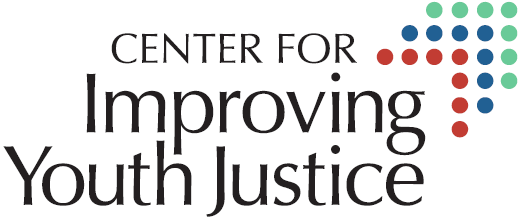An interview with PbS executive director Kim Godfrey by College for Social Innovation fellow Erika Cadena for PbS’ 25th Anniversary Celebration.nWhen did you get started in the juvenile justice field?nI was first introduced to juvenile justice when I was a newspaper reporter. I worked for the Worcester Massachusetts Telegram and Gazette and I ended up being assigned to cover the case of a young man, whose name was Joe Perkins. At 16, Joe committed a horrific crime- he killed his grandmother, his mother and his grandfather. He never committed any other crimes. As I was covering this story, I learned of the lot of suffering that happened when he was young and abusive things done to him by his mother’s boyfriend. While this does not excuse his behavior, it is not unusual to hear of horrific lives that many of these kids who get into trouble end up leading. At the time I covered his case, Joe was age 19, he had been in the care of Massachusetts Department of Youth Services (DYS) since 15. He had done everything that was asked of him, but he was now a man and he was asking the judge to be released. His case became very political. There was a new governor, Governor Weld, and the district attorney felt he had blown the trial. When Joe first went to court, a green attorney was on the case and while it was a horrific murder of three people, the judge said “you gave me nothing to show that this kid should be dealt with as an adult and put into the adult system,” so Joe went to DYS. In their custody, he was a model kid and had done everything he was supposed to, he had done his time and was ready to go. But politics prevailed and the only people who really cared about Joe were from of DYS. Through this case, I got to know Ned Loughran. He was the commissioner of DYS at that time and I really admired his dedication to making sure what was best for the kid was always in the equation. Also, learning more about how that young man was not a danger to society, and it was the political forces that kept him locked up. The situation got really ugly for everyone involved.nWhat compelled you to leave journalism for juvenile justice?In the early 1990s, Joe was turning 21 and they finally decided to release him, newspapers were laying people off. Since I was one of the most recent hires, I thought I might be on the chopping block so I connected with people I talked to as newspapers sources. One of which was Jaime Fox, the Dean at Northeastern University School of Criminal Justice at the time and I explained how I was looking for an advocacy type job. I wanted to use what I knew and use my ability to write and communicate to advocate for system involved kids – for better practices, better services and better everything. Amidst all my conversations, Jaime suggested getting a degree at Northeastern. It was a one-year program and I took another six months to finish my thesis- interviewing all 60 kids that left DYS that year and trying to understand the relationship between their reintegration readiness and the emotions of shame, remorse and empathy. I loved it and it really allowed me to use my newspaper interviewing and writing skills and come up with something at the end that I was able to present to some DYS staff and spread awareness about how they treated the kids and could understand how kids were feeling. Again, Ned was there as my thesis advisor and his former research director became my lead thesis advisor. Also at this time, Ned was leaving state government and then started the Council of Juvenile Correctional Administrators (CJCA, now known as the Council of Juvenile Justice Administrators) in 1994 and I was the first employee hired. He said the first thing our national organization needs is someone to write the newsletter- I happily obliged.nNow is a very important time to see women in leadership roles, what advice would you give to the future generation of women advancing their careers?nKeep at it. You really have to advocate for yourself. Women are just intuitively really good leaders, probably better than men, because we have to be able to juggle households, competing interests, keep a lot of people happy, keep the trains running on time and still carry the energy of a room. I think all women have the capability to be a leader, it comes down to seizing opportunities. There’s a lot of fearlessness that goes into it. Stand strong, take a risk. If you really believe in something, go for it. Also, make sure you have mentors and supporters, a women’s circle. Have a really good group of friends and make sure to remember your “why” and the importance of it when times are tough to give yourself a little boost. Someday there will be a woman president.
